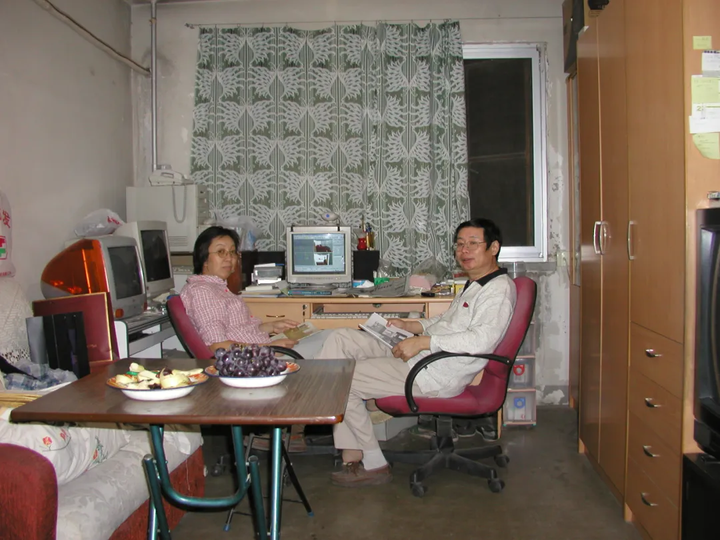I left China and moved to NZ with my family, the adjustment was tough at first

Staff Writer: Yima
Image Source: Supplied
For many Chinese, turning 35 can be a turning point.
Many companies are reluctant to hire employees over 35, and some civil service exams also impose age limits.
This trend isn't unique to China—many other countries are also becoming less friendly to older workers. For example, Australia recently canceled some work visa options for students over 35, leaving many older international students feeling discouraged.
At 35, Xiaoyu chose to leave China and pursue a Ph.D. in New Zealand with her family. Let’s hear her story.
"At 35, I Headed for the Southern Hemisphere"
Xiaoyu is from Jiangxi China and was an associate professor at a private university in Wuhan.
When she turned 35, she chose not to stay in China to continue working and living as usual. Instead, she decided to bring her husband and six-year-old son to New Zealand to pursue a Ph.D.

When asked why she chose New Zealand, Xiaoyu summed it up in a few points:
First, as a university teacher, holding a Ph.D. would offer her better career prospects. However, there are few doctoral programs in journalism and communication in China, and competition for those spots is fierce. Additionally, the current system for doctoral applications in China is very selective, focusing heavily on the applicant’s undergraduate degree.
Since Xiaoyu did not graduate from a prestigious 985 university("985universities" refer to a group of prestigious universities selected for the "985 Project" launched by the Chinese government in 1998. The goal of the project was to build world-class universities and foster high-level research institutions), she felt her chances of getting into a domestic Ph.D. program were slim, so she looked overseas instead.
Second, New Zealand's tuition fees were relatively affordable. Xiaoyu’s Ph.D. program costs only 8,000 NZD per year (about 35,000 RMB).
Third, New Zealand offered a family visa scheme where her husband could get a work visa if she received a Ph.D. offer, allowing him to find a job locally.
Meanwhile, their child could apply for a student visa and attend public school just like a local student.
Xiaoyu's student visa also allowed her to work occasionally to help support the family.
Lastly, she considered her child's education. Xiaoyu’s son is an active and mischievous boy, and she didn’t expect him to excel in China’s exam-oriented education system. She wasn’t overly concerned about grades; instead, she hoped he could experience more of the world and receive a different kind of education.
Considering all these factors, Xiaoyu decided on New Zealand, applied to schools, and eventually received a Ph.D. offer from the University of Canterbury.
"Having Money Doesn’t Help in New Zealand"
On December 9,2022, after packing their bags and saying goodbye to family, Xiaoyu and her family embarked on a new chapter of life in the Southern Hemisphere.
They had no friends or relatives in New Zealand,even the friend who picked them up from the airport was a friend of a friend, someone they hadn’t met before.
Full of hope for their new life, the family landed in Christchurch.

When moving to a new country, the first priority was to settle basic needs like food, housing, and transportation.
They initially booked an Airbnb for a temporary stay, but it was expensive, and they needed to find a more permanent place to settle down.
Xiaoyu owned a house in Wuhan and had been a landlord before, so she was used to the idea that as long as you had money, you could find a place to rent. However, New Zealand’s rental market gave them a rude awakening.
“In New Zealand, having money doesn’t guarantee you can rent a house.”
The rental process in New Zealand is more complicated than in China.
Often, multiple people view a house at the same time, and the landlord interviews each applicant, assessing their profession, family structure, lifestyle habits, and other factors before choosing the most suitable tenant.
Xiaoyu had to look for houses online, send messages to apply, and attend viewings with her family. They viewed many houses but hadn’t found a good one. Finally, they found a good place at a reasonable price, and she hoped they would be selected.
However, a cultural misunderstanding caused her to miss out on this opportunity. The landlord had chosen their family and sent an email to notify them, but the email ended up in Xiaoyu’s spam folder, and she didn’t check it in time. Later, the landlord sent a follow-up text asking her to check her email, but she assumed it was a scam and ignored it.
By the time she realized it was a genuine message, it was too late.
This incident taught her a valuable lesson and made her more diligent about checking her emails. “Live and learn,” she says, as she quickly adapted to the local way of life, just like many new immigrants do when faced with cultural differences.

"Working Together as a Family to Overcome Challenges"
Soon after, Xiaoyu’s family found a suitable house and moved in. With housing sorted, the next step was organizing everyone’s work, school, and daily life.
For Xiaoyu, things were simple—she was a student and just needed to follow the school’s requirements and manage her studies. She was assigned an office but could also study from home.
Her six-year-old son enrolled in a local school. Initially, he felt shy and uncomfortable in the new language environment.

For example, when playing at the community playground, he would encounter other immigrant children from different countries, but they couldn’t communicate. However, “children are smart and proactive,” and soon he began picking up on the friendly signals from other kids and started making friends.
One evening, during a walk, Xiaoyu was surprised to see her son confidently greet a local couple passing by. She was amazed at how quickly children adapt compared to adults.
In contrast, Xiaoyu’s husband faced a more challenging journey.
In China, he had worked as a mechanical engineer and a university lecturer. After resigning and moving to New Zealand, he had to "shed his old identity" and start over.
After sending out countless job applications, he eventually landed a job as a draftsman, which matched his professional background. However, because the salary didn’t meet the median wage requirement for residency, this job didn’t count towards his work experience under New Zealand’s immigration policy. After six months, he quit.
He began applying for jobs again, but “New Zealand’s job market was tougher than expected”.Despite getting a few interviews, none of them led to offers.
Determined not to burn through their savings, he took a factory job to ensure some income. This work wasn’t easy; he had to leave for work at 3 a.m. After a while, he started looking for other opportunities.
At the time, they learned that jobs as bus and truck drivers were on New Zealand’s immigration green list, so he decided to pursue those paths.
While working at the factory, he studied for his Class 2 driver’s license and then got a job as a delivery truck driver. He also sought out bus driver positions, walking in to recommend himself. However, because his visa had only five months left and he didn’t have a P endorsement, he was rejected.
Recognizing the problem, they quickly took steps to resolve it.
In New Zealand, if you pay one year’s worth of tuition, Immigration New Zealand grants a one-year student visa.
To secure a longer-term visa, Xiaoyu applied to pay two years of tuition, which allowed the whole family to get two-year visas. Her husband also obtained his P endorsement.
With everything in place, he applied again with confidence.
In March 2024, Xiaoyu’s husband finally secured a job as a bus driver in Christchurch.
Less than one month after he started, New Zealand’s immigration policy changed, and bus drivers were removed from the green list.
Xiaoyu and her husband felt "very lucky and relieved," grateful that their perseverance paid off and that they managed to "get on board" just before the policy door closed.

"Living Life the Way You Want"
Recently, Xiaoyu returned to her hometown in Jiangxi for a vacation.
For the past decade, she had lived and worked in Wuhan and hadn’t been back to her hometown in a long time. This visit stirred up many emotions, and she occasionally questioned,“What am I working so hard for?”
Her friends in her hometown seemed to be living a peaceful and comfortable life, with family and friends nearby. They didn’t have to leave their home country or start over in a foreign land.
Many people also envy her life. On her personal social media account, many married women with children, like herself, express their desire to study abroad just like she did.
"It’s not easy to give up an established life—the more solid your foundation, the harder it is to leave," Xiaoyu empathizes with these women.
However, life only happens once, and if you have the chance to fight for the life you want, it’s worth it.
Maybe not everyone is as lucky as Xiaoyu, who had a supportive job that allowed her to pursue a Ph.D. abroad and a family that stood by her side.

But with effort, we can all find our own path.
For someone, that path may involve venturing out into the world, while for others, it may mean staying rooted in their homeland. Either way, as long as the journey feels right and true, it’s worth taking.



